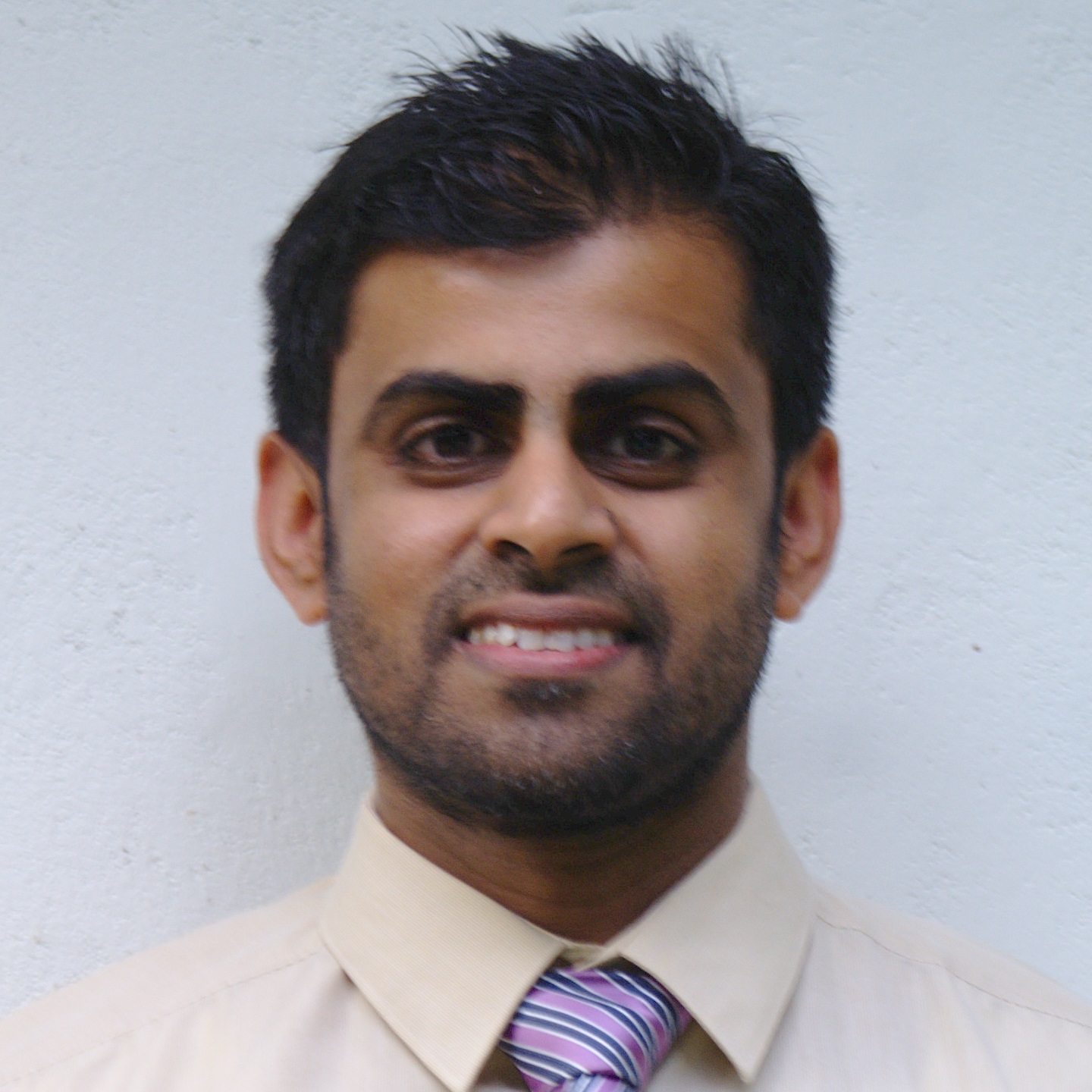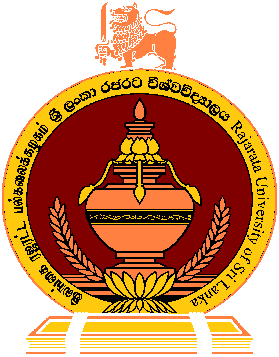 Education
Education
- PhD in Environmental Biotechnology
University of Westminster, United Kingdom (2014)
- B.Sc (Honours) in Biotechnology
University of Westminster, United Kingdom (2010)
 Professional Qualifications
Professional Qualifications
- Post Doctoral fellow at the section of Environmental Biotechnology, Department of Chemistry and Microbiology, Aalborg University, Denmark (2015 – 2018)
- Certificate course in Teaching in Higher Education (reading), Rajarata University of Sri Lanka
- Advanced Diploma in Teaching and Learning in Higher Education, University of Westminster, United Kingdom (2012)
 Memberships of Professional Bodies/Associations
Memberships of Professional Bodies/Associations
- Associate Member of Biochemical Society, United Kingdom
- Member of Society of General Micro Biology, United Kingdom
 Research Interests
Research Interests
- Bio-electrochemical systems (BES)
- Microbial ecology and interactions
- Microbial Biotechnology
- Renewable microbial bioenergy/biofuels
- Microbial biopolymers
- Molecular and single-cell Microbiology
 Teaching Subjects
Teaching Subjects
- MIB 4206 – Molecular Biotechnology
- BIO 3201 – Molecular Biology
- MIB 3208 – Environmental Microbiology
- MIB 4103 – Molecular Microbiology
- MIB 4207 – Microbial Genetics
- BPT 2202 – Introduction to Bioprocess Technology
- BIO 3204 – Bioinformatics
- BOT 2414 – Molecular Biology (External)
- ZOO 1123 – Cell Biology & Biochemistry (External)
- ICT 4307 – Bioinformatics and Computational Biology
 Current Research and Projects
Current Research and Projects
- Microbial overproduction of Polyhydroxyalkanoate (PHA) bioplastics using waste material feedstocks
- Using lake sediment bacteria to mineralize industrial azo dye pollutants
- Proteomic and Machine Learning Approach to Discovery of Novel Biomarkers affiliated with Chronic Kidney Disease of Unknown Etiology (CKDU) – World Bank funded AHEAD grant scheme
 Editorial Experience
Editorial Experience
- Conference chair – Rajarata International Research Conference (RIRC) 2019.
- Editorial Board member for the MDPI international journal Symmetry (Impact Factor – 2.9) since October 2019.
- Guest editor for the journal special issue titled “Symmetry in Structural Biology and Protein Characterization” for the MDPI journal Symmetry. Link
 Publications
Publications
- Fernando, E., Kyazze, G., Ahsan, A. and Fernando, P., 2021. Expedited Biodegradation of Organic Pollutants and Refractory Compounds Using Bio-Electrochemical Systems. IntechOpen Book Chapter (DOI – 10.5772/intechopen.99229)
- Dissanayake, M., Rajakaruna, N., Herath, C., Rathnayake, S. and Fernando, E., 2021. Mineralization of persistent azo dye pollutants by a microaerophilic tropical lake sediment mixed bacterial consortium. Environmental Advances, 3, 100038.
- Hu, Y., Duan, C., Fu, D., Wu, X., Yan, K., Fernando, E., Karunarathna, S.C., Promputtha, I., Mortimer, P.E. and Xu, J., 2020. Structure of Bacterial Communities in Phosphorus-Enriched Rhizosphere Soils. Applied Sciences, 10(18), 6387. (Impact Factor – 1.7)
- Fernando, E., McIlroy, S.J., Nierychlo, M., Herbst-Alexander, F., Schmid, M.C., Wagner, M., Nielsen, J.L., and Nielsen, P.H., (2019). Resolving the individual contribution of key microbial populations to enhanced biological phosphorus removal with Raman-FISH. International Society for Microbial Ecology (ISME) Journal.
- Fernando, E., Keshavarz, T., Kyazze, G., 2018. The use of Bio-electrochemical systems in environmental remediation; A Review. Journal of Chemical Technology and Biotechnology
- Mcilroy, S., Onetto, C., McIlroy, B., Herbst, F.A., Dueholm, M.S., Kirkegaard, R., Fernando, E., Karst, S., Nierychlo, M., Kristensen, J. and Eales, K., 2018. Genomic and in situ analyses reveal the Micropruina spp. as abundant fermentative glycogen accumulating organisms in enhanced biological phosphorus removal systems. Frontiers in Microbiology, 9,.1004.
- Hao, L.P., McIlroy, S.J., Kirkegaard, R.H.H., Karst, S.M., Fernando, E.Y., Aslan, H., Meyer, R.L., Albertsen, M., Nielsen, P.H. and Dueholm, M.S., 2017. Novel prosthecate bacteria from the candidate phylum Acetothermia revealed by culture-independent genomics and advanced microscopy. International Society for Microbial Ecology (ISME) Journal.
- McIlroy, S.J., Kirkegaard, R.H., Dueholm, M.S., Fernando, E., Karst, S.M., Albertsen, M. and Nielsen, P.H., 2017. Culture-Independent Analyses Reveal Novel Anaerolineaceae as Abundant Primary Fermenters in Anaerobic Digesters Treating Waste Activated Sludge. Frontiers in microbiology, 8 .1134.
- Fernando, E., Keshavarz, T., Fonseka, K., Kyazze, G., 2016. Treatment of colour industry wastewater and concomitant biogenic electricity production using stacked mono-chamber type Microbial Fuel Cells. Environmental Technology 255- 264.
- Fernando, E., Keshavarz, T., Kyazze, G., 2014a. Complete degradation of the azo dye AcidOrange-7 and bioelectricity generation in an integrated microbial fuel cell, aerobic two-stage bioreactor system in continuous flow mode at ambient temperature. Bioresource Technology 156, 155-162.
- Fernando, E., Keshavarz, T., Kyazze, G., 2014b.External resistance as a potential tool for influencing azo dye reductive decolourisation kinetics in microbial fuel cells. International Biodeterioration & Biodegradation 89, 7-14.
- Fernando, E., Keshavarz, T., Kyazze, G., 2013.Simultaneous co-metabolic decolourisation of azo dye mixtures and bio-electricity generation under thermophillic (50°C) and saline conditions by an adapted anaerobic mixed culture in microbial fuel cells. Bioresource Technology 127, 1-8.
- Fernando, E., Keshavarz, T., Kyazze, G., 2012.Enhanced bio-decolourisation of acid orange 7by Shewanella oneidensis through co-metabolism in a microbial fuel cell. International Biodeterioration & Biodegradation 72, 1-9.



